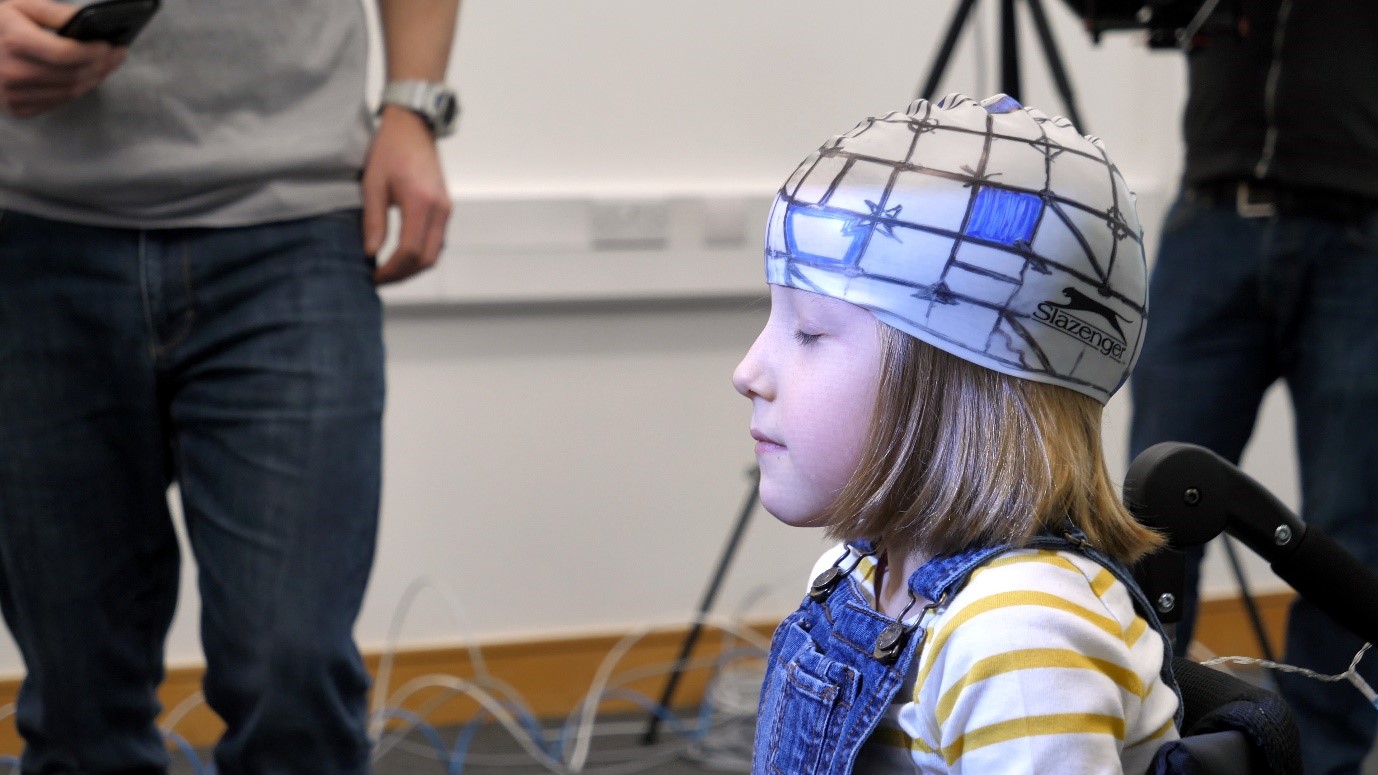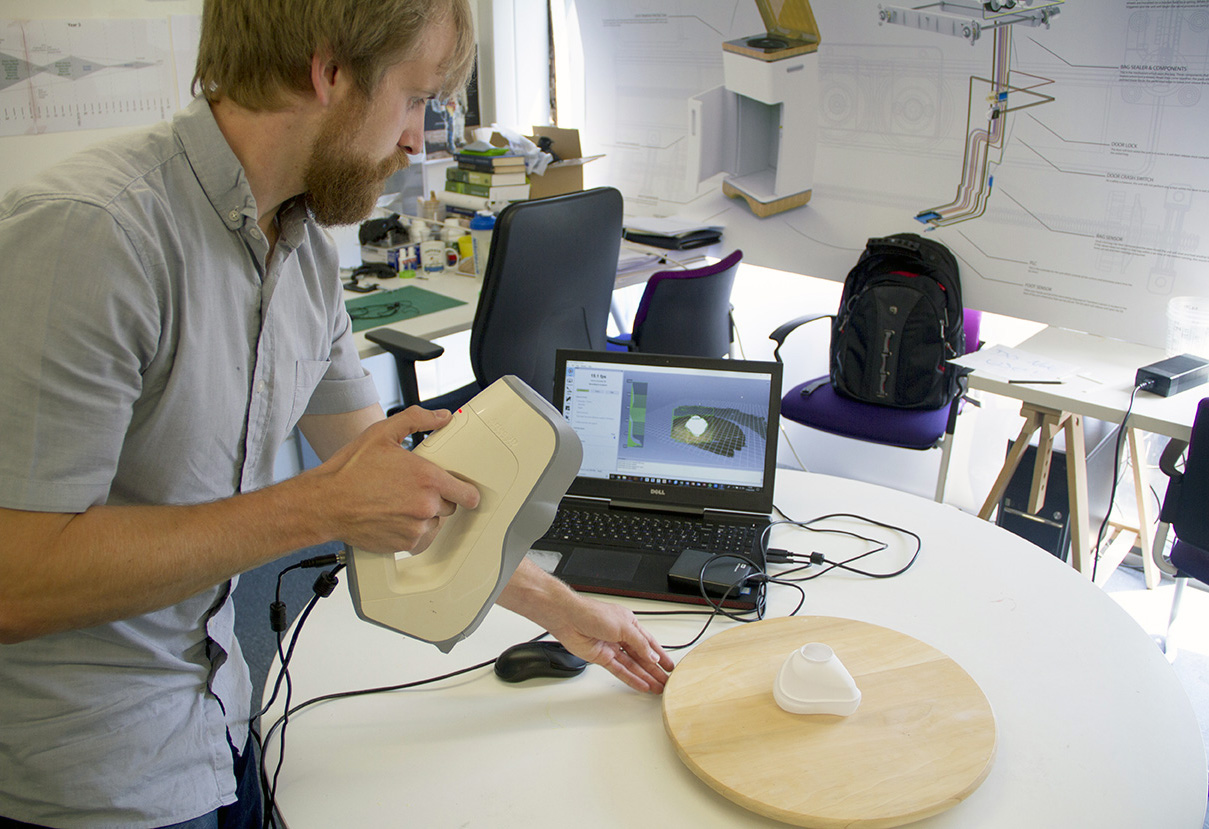
Research and Innovation: The Road to Success
A commitment to research and innovation by the next Welsh Government will be key to building a successful and prosperous future, writes Professor Paul Boyle of Swansea University.
12 April 2021
This article originally appeared on the IWA website.
Our research and innovation sector is vital to Wales’ overall economic productivity. It brings significant economic, social and health benefits; underpinning industries and creating jobs and products that enhance our quality of life and enrich our cultural wellbeing.
Research is also an important tool through which we address critical societal challenges in Wales and beyond, and we can find many examples of high-quality, world-leading and world-changing research being conducted across Wales.

At a recent event hosted by Universities Wales to launch the new Civic Mission Framework for Welsh universities, we saw a snapshot of the impact of Welsh research; from a doll that enhances wellbeing in people living with dementia developed at Cardiff Metropolitan University, to a bespoke horse-riding helmet designed for a girl with cerebral palsy created at University of Wales Trinity Saint David; from a big-data project led by Cardiff University to deliver large scale, rapid sequencing of the causes of COVID-19, to the development of future nuclear reactors to work towards net-zero taking place at Bangor University.
Partnership and collaboration are at the heart of Wales’ research success. International partnerships bring global excellence to our universities and research networks and draw in vital income and investment to Wales. At the same time, regional collaboration with small and medium sized businesses (SMEs) brings research to the frontline of commercial innovation, developing new products and services and strengthening business.
Our strengths
Wales is a consistently strong performer within international and regional research and innovation and, despite the modest size of the sector, we can be proud of its diversity and impact.
Almost 11% of Wales’ academic publications belong to the world’s top 5% most cited publications in 2014[1] – a higher proportion than was the case in England or Northern Ireland.
An analysis of Wales’ Research Excellence Framework (REF) 2014 submissions undertaken by King’s College London identified research strengths in psychology and neuroscience, engineering, and geography to name but a few. The same report noted the most common impact topics for Wales included informing government policy, technology commercialisation and regional languages of the British Isles.

In addition, Wales outperforms the European average in collaborating with SMEs[2], which is notable given the higher proportion of small businesses in Wales compared to the UK as a whole, accounting for 62.4% of employment in Wales.
And, the agility and resilience of our research and innovation sector has been in evidence over the past twelve months, through some of the ground-breaking work on COVID-19 undertaken at Welsh institutions.
We are optimistic that here in Wales, we can continue to outperform our means in terms of impact, and contribute meaningfully to the priorities highlighted by Welsh and UK Governments: post-pandemic recovery; achieving carbon net zero; building sustainable communities; and nurturing productive and competitive businesses.
The current landscape and impending risks
We are aware that we must meet these opportunities against a backdrop of a new international landscape and shifting global relationships. Given the centrality of research and innovation to the Welsh economy, the research community, and indeed the nation, Wales faces significant risks if urgent action is not taken.
We are optimistic that here in Wales, we can continue to outperform our means in terms of impact, and contribute meaningfully to the priorities highlighted by Welsh and UK Governments: post-pandemic recovery; achieving carbon net zero; building sustainable communities; and nurturing productive and competitive businesses
The UK Government’s confirmation that the UK will be an associated country in Horizon Europe is welcome news, and it is vital that Wales proactively takes full advantage of association.
However, the withdrawal of European Structural Funds represents a significant risk to the Welsh research base, particularly alongside increased financial pressures in the wake of the pandemic. While some UKRI funding will increase, bringing crucial funding to Wales, we must ensure that we remain competitive and are able to leverage the diverse strengths of the research and innovation sector in Wales.
The 2018 Reid Review set out recommendations for Welsh Government to commit to real-terms increases in quality-related research funding, increases to innovation funding, and incentivising institutions to win investment from outside Wales. Implementing these recommendations has become more important than ever.
More recently, in his Strength in Diversity report, Professor Reid also underlined the importance of collaborative approaches to securing research funding into Wales, suggesting that the sector’s diversity is an untapped strength.
There are many benefits to research collaboration, both between Welsh universities and beyond. In addition to pooling diverse expertise to achieve maximum impact for society, purposeful collaboration increases the competitiveness of university research and innovation teams within a cluster by making it easier to form bidding partnerships, share infrastructure and split the burden of competitive bidding processes. Successful partnerships can raise the profile of research and innovation within a region and, importantly, can simplify discussions with funders, government and regional organisations by establishing a single point of contact.
Effective collaboration is therefore critical as Wales seeks to secure its place as a global player on the international research and innovation stage.
The future is collaboration
Research activity that is rooted in the needs of a region and its citizens is an increasing priority within the research funding landscape, both in Wales (for example, within the Welsh Government’s Regional Investment for Wales Framework) and the UK (e.g. the proposed Shared Prosperity Fund). Such place-based approaches to research can only be successful through effective collaboration between academics, the public and private sectors and other regional stakeholders.
To ensure that we are as strongly positioned as possible to bring future investment to Wales, Welsh universities are already considering how we can support collaboration by implementing the recommendations of Strength in Diversity. This will enable us to present more ambitious and attractive offers to domestic and international partners, by creating stronger research teams from a larger pool of expertise.
Our sector is committed to playing its part to increase the economic sustainability of the nation, but there is more that can be done to ensure that research and innovation continues to deliver tangible benefits for the people and places of Wales.
Where next?
We cannot assume that research and innovation advances will happen serendipitously. In Universities Wales’ 2021 manifesto Building Wales’ Future we have set out two clear asks of the next Welsh Government:
- Implementing the Reid review, committing to real-terms increases in quality-related research funding, increases to innovation funding, and incentivising institutions to win investment from outside Wales
These long-held recommendations remain vital to delivering the research and innovation uplift that wales deserves.
- Establishing a Deputy Minister for Research and Innovation, to work with universities and capitalise on the opportunities to drive economic growth
A champion for research and innovation is required within the Welsh Government, tasked with developing and implementing a compelling new vision for the nation, at a time when the UK Government has set out its strategy in a new research and development road map.
While we await the outcome of the forthcoming Senedd election with interest, we remain confident that universities in Wales, in collaboration with one another, and with other national and international partners, will be at the forefront of the collected effort required to build a bright and sustainable future for Wales.
[1] International Comparative Performance of the Welsh Research Base 2010-2014, 2016 update – Research Intelligence – Elsevier
[2] Size analysis of active businesses in Wales, 2019 (gov.wales)


